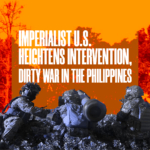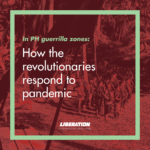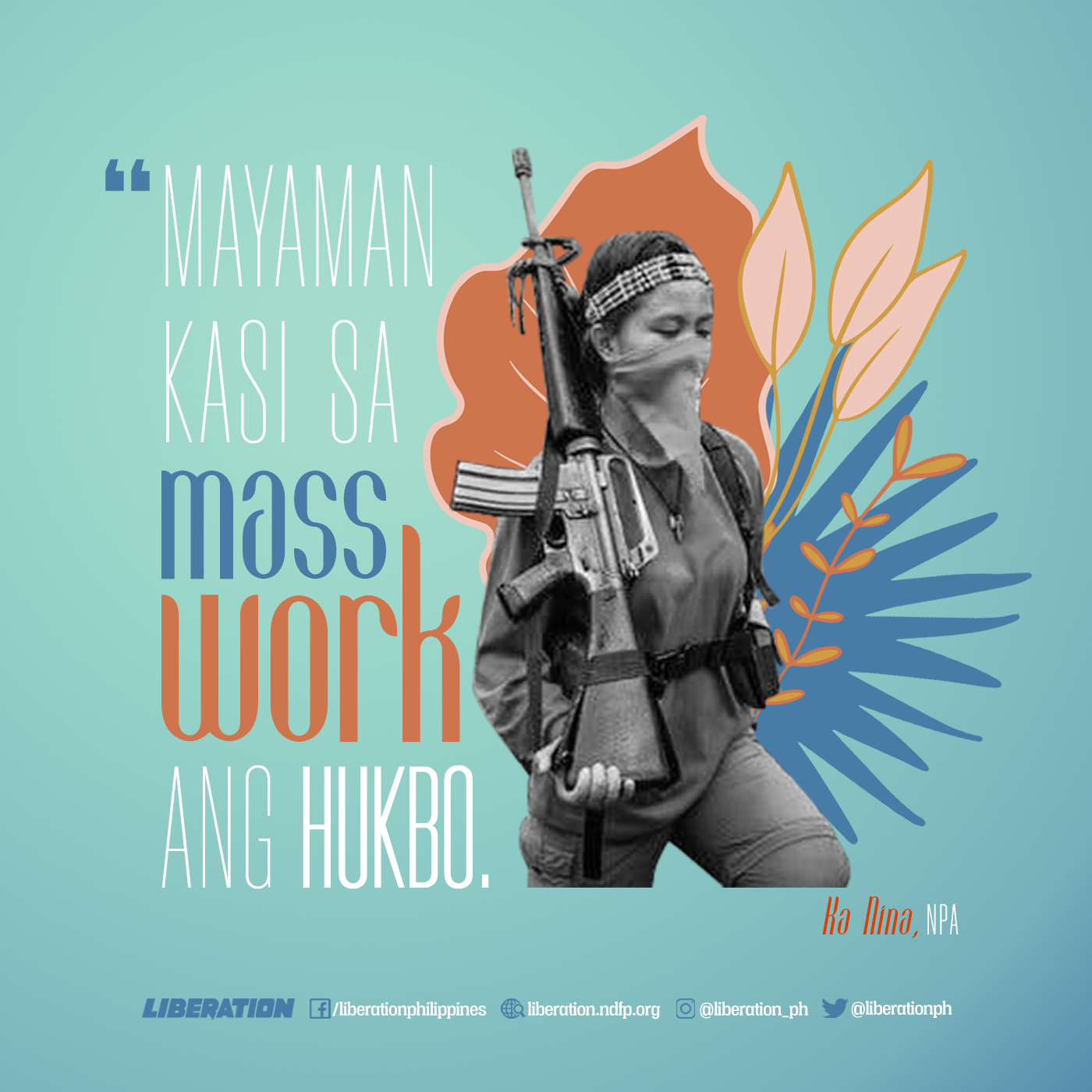Imperialist U.S. Heightens Intervention, Dirty War in the Philippines
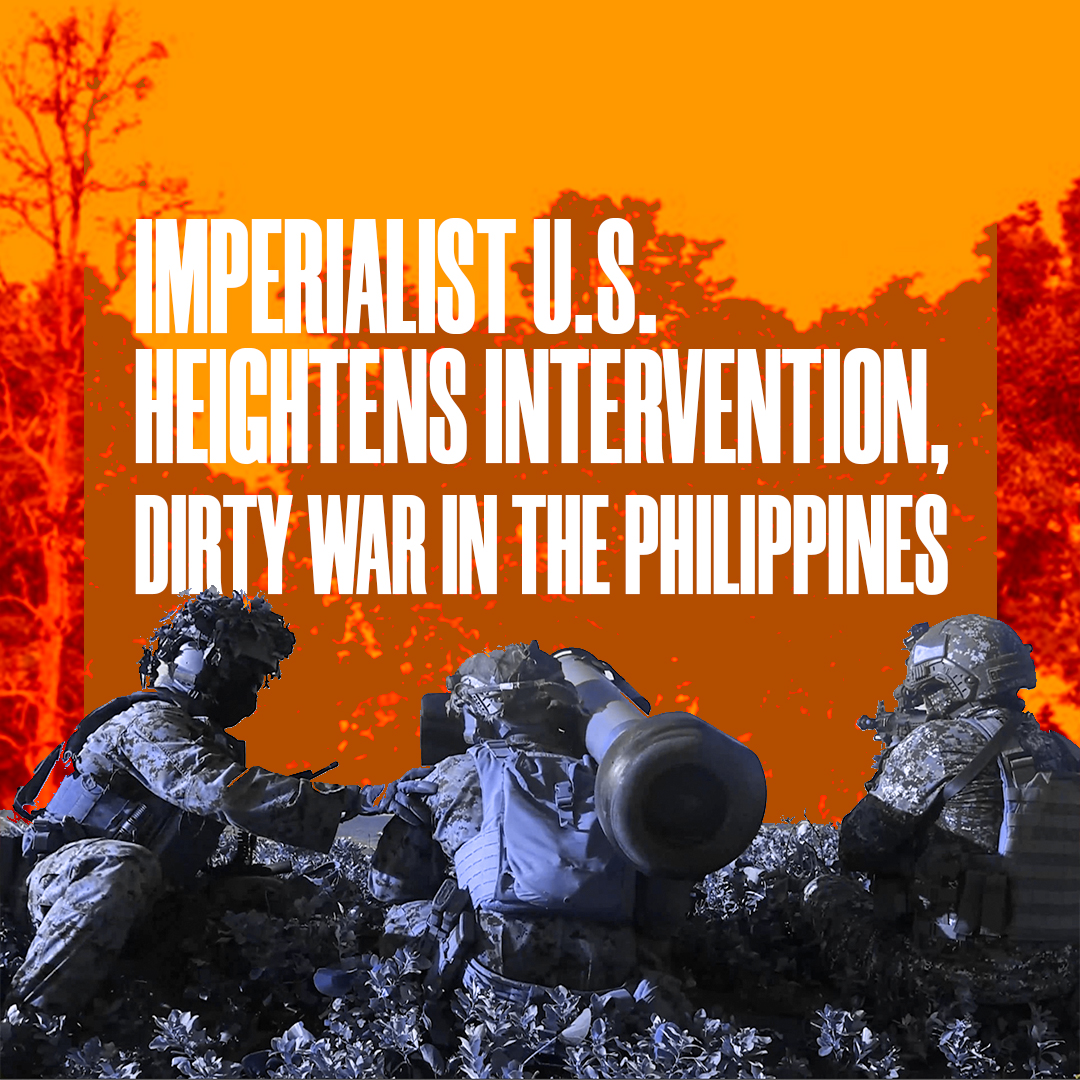
In a recent collated report, the Philippine Revolution Web Central traced a disturbing modus operandi of the Armed Forces of the Philippines—that of conducting summary execution of captured combatants or hors de combat of the New People’s Army (NPA), in violation of international war protocols. The Armed Forces of the Philippines (AFP) has been killing in brutal rubouts senior or veteran revolutionaries aged 60 and up, captured Red fighters, unarmed peace consultants of the National Democratic Front of the Philippines (NDFP), and abducted civilians who were suspected to have connections with the revolutionary movement.
The AFP and its paramilitary groups have strafed and bombed civilian communities, hamletted if not encamped in civilian communities, threatened residents by their presence, corrupted minors and women, forcibly held “meetings” and ordered people to present themselves to the military to “clear” their names and be “informed” on the activities of the revolutionaries. While doing these, the AFP attached fabricated stories of armed encounters or “pursuit operations,” fake surrender, and various labels slandering the revolutionaries to spread disinformation.
Although the reactionary government through the AFP and the national police are the main implementers of various “counterinsurgency” Oplans, the justification and guide on “counterinsurgency” and “anti-terrorism”, the supplies of arms, equipment, and intelligence, the myriad of cooperation and trainings for “interoperability” of US and Philippine troops are all from the imperialist US. That a foreign power is directly arming and instigating the local reactionary government of a sovereign country to shoot, kill, and maim the Filipino people is actually done openly. And they euphemistically call the master-puppet setup as a “treaty partnership,” or a relationship of “treaty allies.”
History shows the U.S. imperialist through military aid and cooperation has been directly behind every thieving regime of puppet Philippine presidents, dictators and tyrants. They waged war on Philippine soil and repressed civilian dissent to defend their narrow interests—a resource-rich, strategically located neocolony.
Given the bloody history of US imperialist’s “pacification” campaign at the turn of 20th century, followed by the deceitful neocolonial control they have imposed since 1946 to placate the patriotic Filipinos, the war against today’s progressive and revolutionary Filipinos is not a throwback but an increasingly more insidious, brutal continuation of imperialist US’ bloody subjugation of peoples in these shores.
Their latest crimes and attacks on the people and their revolutionary vanguards wreaked losses to the Filipino people. Every revolutionary and supporters killed, every community bombed and threatened, represent more room for the narrow alliance of big landlords, bourgeois compradors, and monopoly corporations to continue plundering the riches of not only the Philippines but also of the neighboring countries which the imperialist US seeks to control by forward deployment in “treaty allies” such as the Philippines.
US imperialist most eager to crush national liberation movements like in Ph
Imperialist US is most interested to crush the Philippine national democratic revolution with a socialist perspective because its very existence is another threat to imperialism. When the national democratic revolution gains victory, the US imperialist risks losing a neocolony and social base of local oligarchs and puppet government, thus depriving them of a geopolitically strategic military outpost, a parrot in regional formations as ASEAN, a dumping ground for surplus products and capital, source of cheap labor and resources.
The national democratic revolution is an assertion of the Filipino people’s right to self-determination against the domination of US imperialism and towards genuine national independence.
Since 1968, the CPP-led national democratic revolution has been a threat to the US imperialist’s global cultural offensive. Because here is a self-reliant army of revolutionaries belying all the imperialists’ cunning and unfounded claims for people to rely only on individual superheroes and myths, serve only themselves and not the masses, and believe that the good old Uncle Sam’s imperialism is the end of history.
With the experiences and lessons gained by the CPP, the NPA, and the NDFP in mass work, learning from and working with the masses to change their situation, using the Marxist, Leninist and Maoist theories in revolution on the concrete conditions in the Philippines, using it to guide the Filipino revolutionaries’ war of national liberation, they are already helping other revolutionaries and liberation movements all over the world.
The imperialist US itches to shut down sources of revolutionary counter-cultures and messaging that threatens its full-spectrum dominance in economic, military, political, and cultural spheres around the world.
US “war on terror” and terrorist tagging
As Juliet de Lima, interim peace panel head for NDFP, noted in a speech on imperialist cultural offensive, since the US launched its “war on terror,” all sort of “terrorists” have appeared all over the globe. They are none other than enemies of imperialism who opposed the US push for neoliberalism (monopolies) and globalization (monopoly profit-taking). The US has arrogated to itself the self-serving task to launch war against “terrorists” wherever they are. Since then their troops and their cultural offensives have invaded countries, overthrown governments, and killed people whom they accuse of breeding, supporting or fronting for “terrorists.”
In the Philippines, then US puppet administration Gloria Macapagal-Arroyo swiftly embraced the “war on terror” through Oplan Bantay Laya I and II. The US-Arroyo regime’s bloodbath against the people—personified by the likes of notorious butcher general Jovito Palparan—justified its reign of terror by blurring the distinction between unarmed legal democratic activists and armed revolutionaries. Everyone became a target.
The US-led war against the Philippine liberation movement was continued by the next US puppet regimes. After so many years, under the cover of COVID19 pandemic, the US-Duterte regime finally managed to upgrade the fangs of the Anti-Terror Act. That was amid a harrowing war on drugs that killed tens of thousands of victims among the poor; war against the Bangsa Moro that became an excuse for pounding Marawi and imposing the first martial law after Marcos Sr; and amid a “counterinsurgency” war against revolutionaries in the countryside.
Duterte failed in his ambitions to be the first US puppet president who can sign a peace accord with the CPP, where he aimed to follow the US guide to disarm and force the revolutionaries to capitulate. He then unleashed an all-out war (not that they stopped during peace talks), but with additional vigor at being brutal and deceitful. By the time he exited Malacanang, Duterte can lay claim to the notoriety of forcing the terrorist-labeling on revolutionaries in the most abrasive, shameless and big-budgeted way through the NTF-ELCAC and so-called whole-of-nation approach.
Now his successor Marcos Jr and daughter Sara Duterte are continuing the US-instigated “counterinsurgency” war against Filipinos, following the same track that failed.
The official website of US Defence Department in September 2022 did not even hide it, saying “The United States and the Philippines have a robust (underscoring ours) counterterrorism program. The United States has counterinsurgency efforts in Mindanao, the country’s largest island, since 2000.”
Current US President Joe Biden said in Fact Sheet: Indo-Pacific Strategy of the United States that they are extending and modernizing their “defense presence” and enhancing their capabilities (in the Philippines) to defend their interest and to deter aggression against U.S. territory and against their allies and partners (underscoring ours).
IBON Foundation cited the Philippines as the biggest recipient of US military aid among Southeast Asian countries, with an average of U$ 54 million annually since 2019, mostly military equipment.
The military equipment will make the AFP “more capacitated,” the Philippine News Agency quoted Gen. Cirilito Sobejana when he received the equipment from US. Every year, the US forces and reactionary Philippine troops conduct 300 military exercises, thus helping them gain interoperability, make the local reactionary troops “capacitated” to use surplus US equipment, among others.
All these US imperialist contributions strengthen the local reactionary troops and embolden the puppet government, at the expense of the people and their human rights.
The long-term effects of the intensifying US-instigated “counterinsurgency” war include not just the growing list of gross abuses and violations of human rights and international humanitarian law with utter impunity. It also includes the obstacles generated by relentless cultural offensives against the revolutionaries raised by the psywar guide of US imperialists’ war on terror: the distribution for example of fake news to deceive the masses and mislabel the revolutionaries and liberation fighters as “terrorist.”
The masses know the opposite is true and that in words and deeds the US imperialism is the real terrorist. The progressives and revolutionary forces are challenged to develop unity, cooperation, and coordination of all peoples in the Philippines and abroad, to raise the level of struggle against imperialism and reaction, in particular against imperialist plunder and war led by US and applied hook line and sinker by the puppet government currently led by Ferdinand Marcos Jr. (Pinky Ang) ###


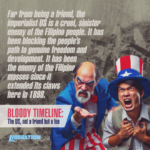
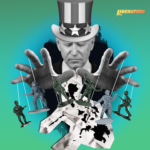

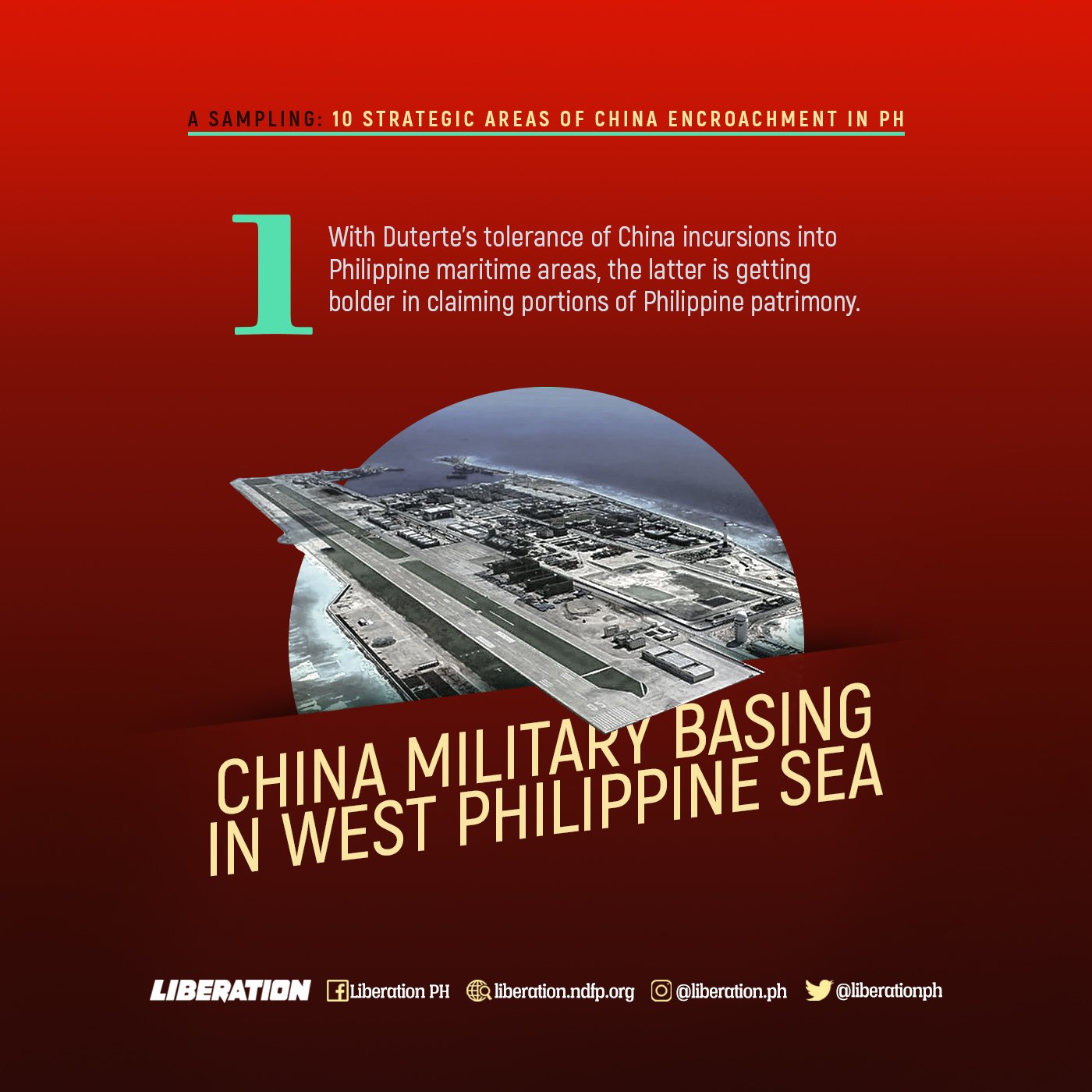


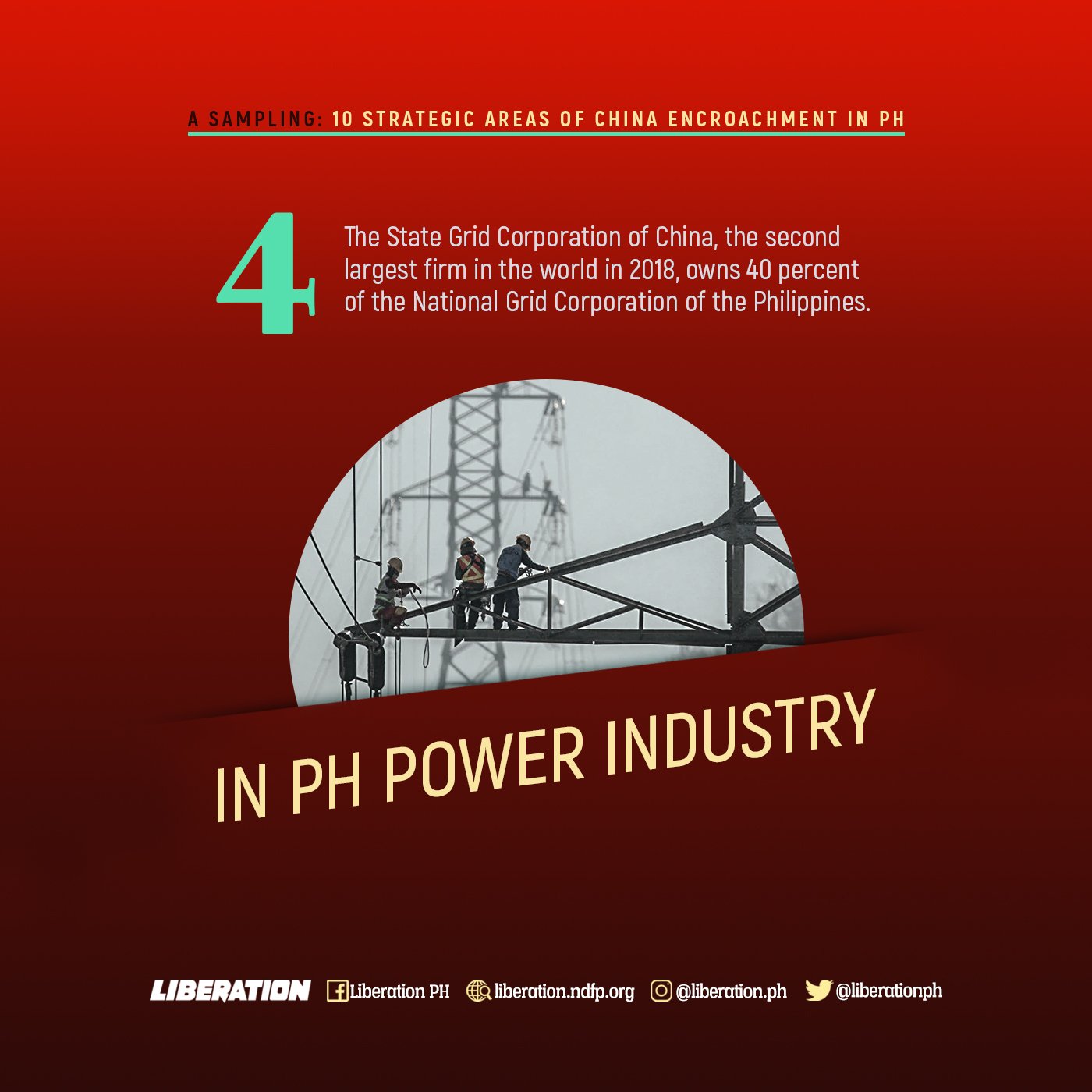
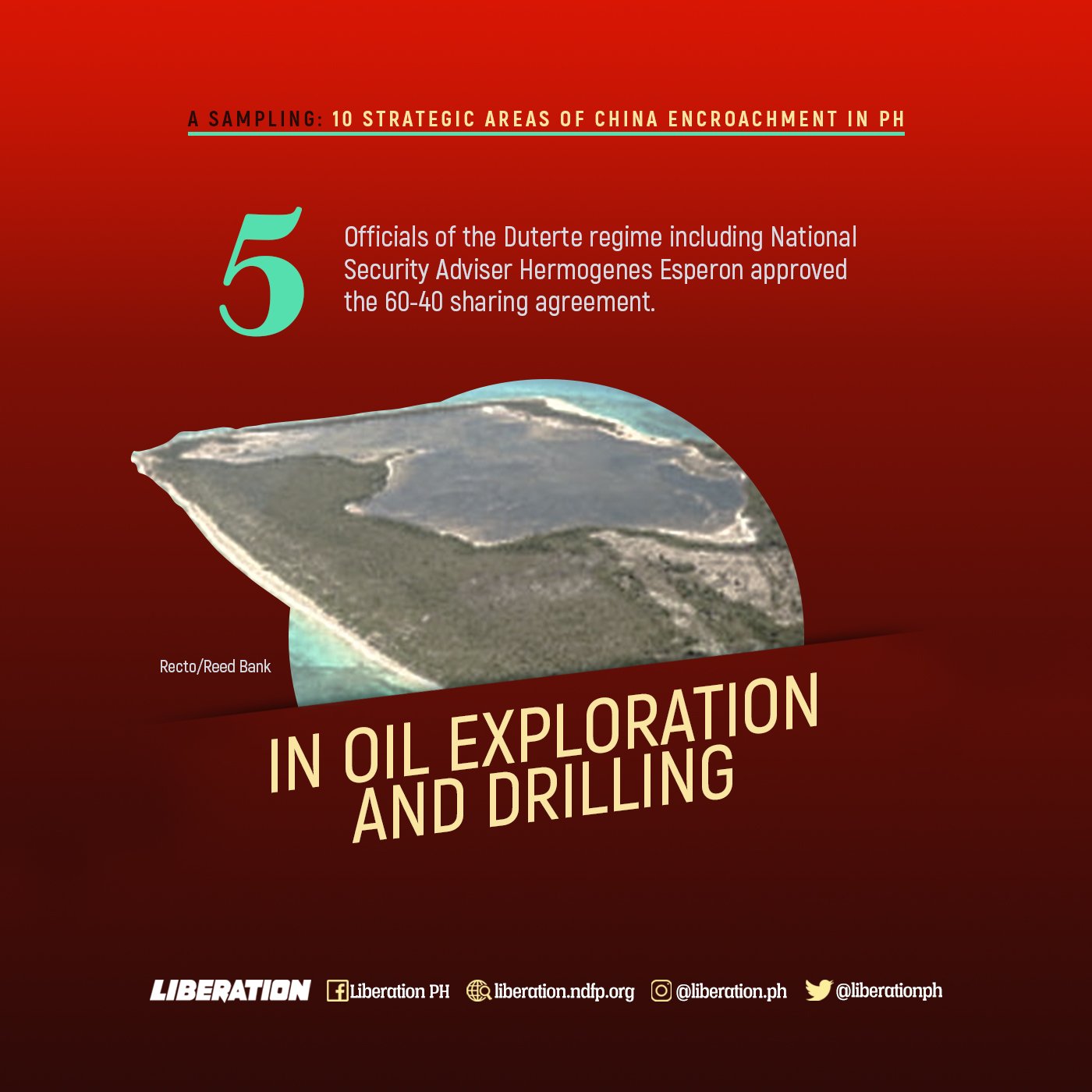
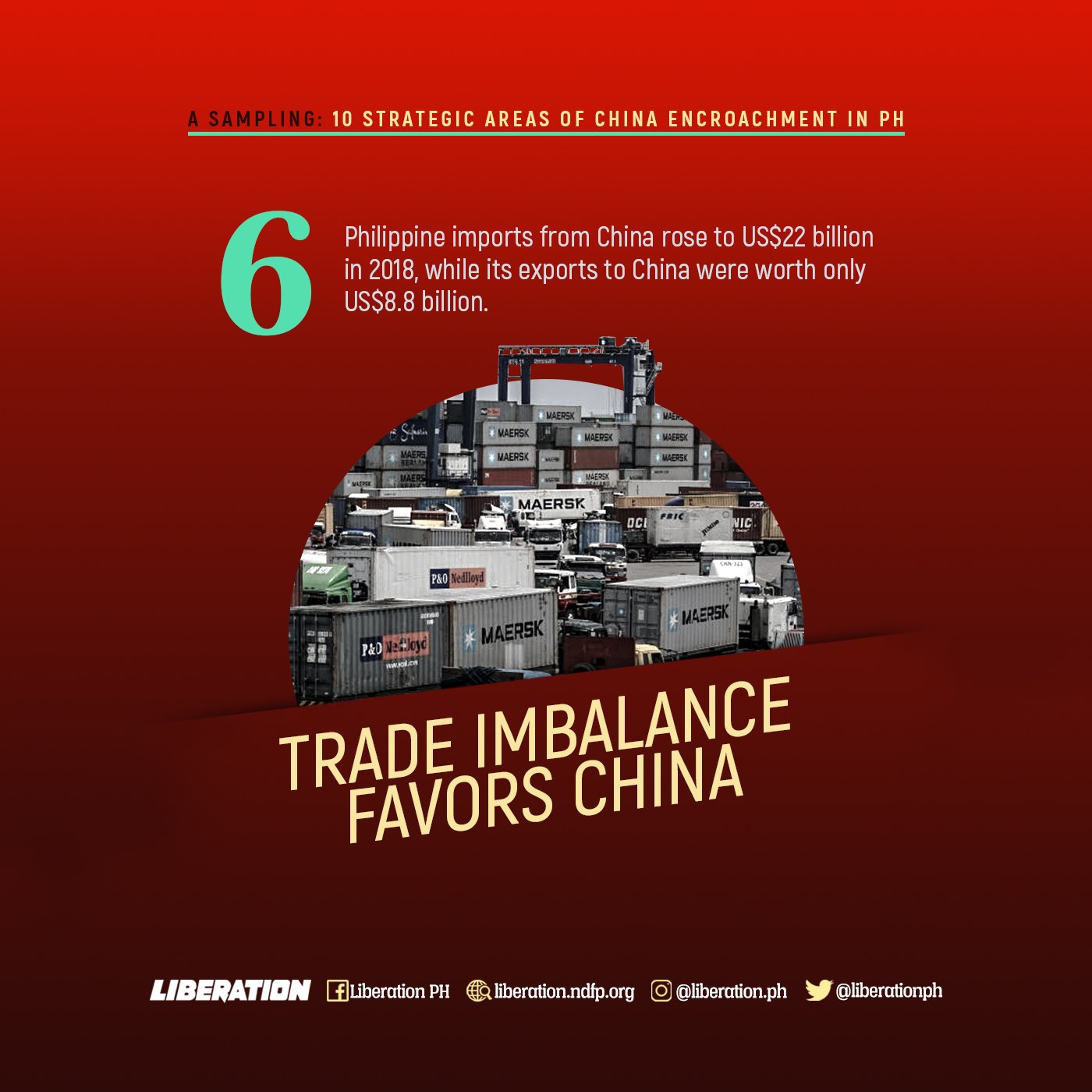
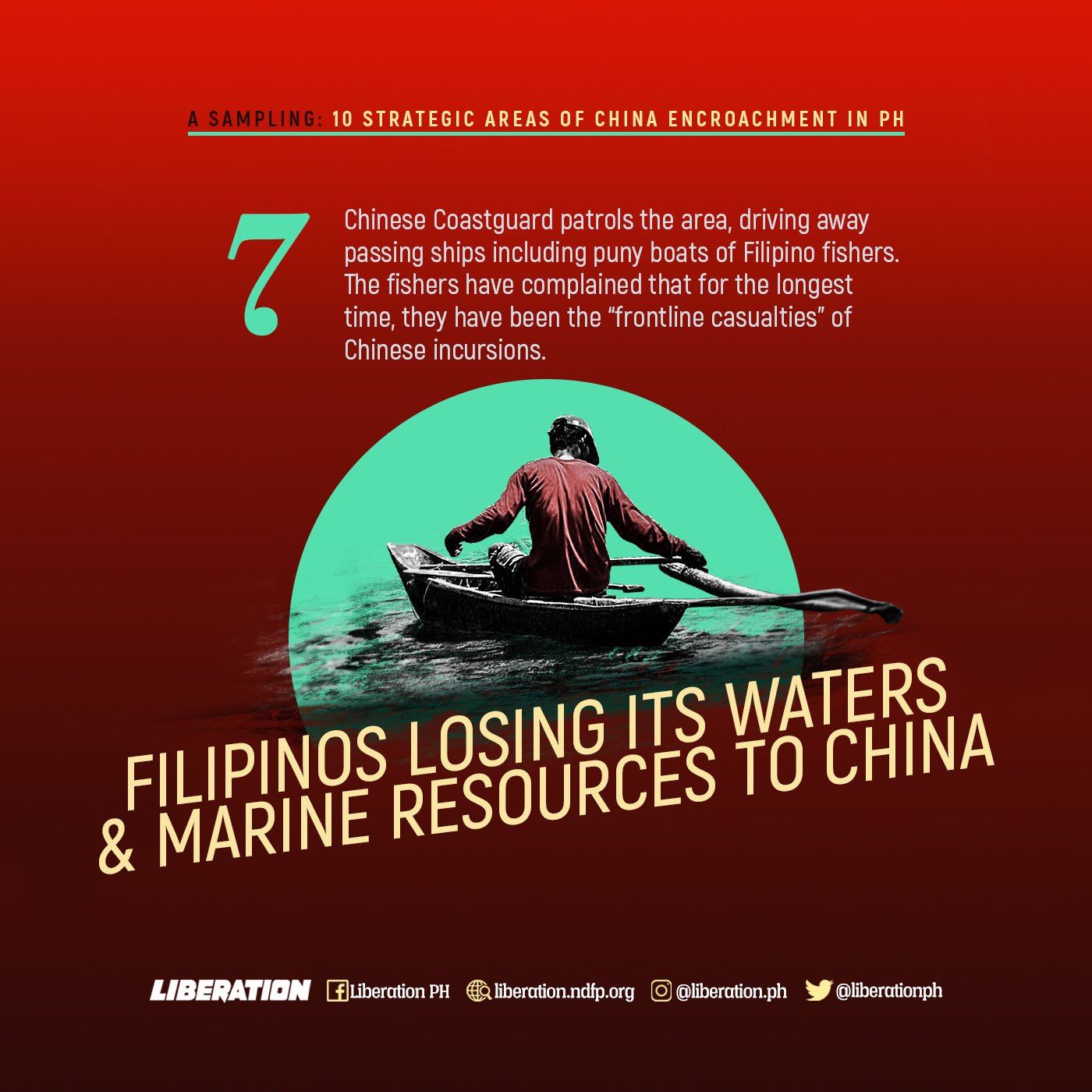
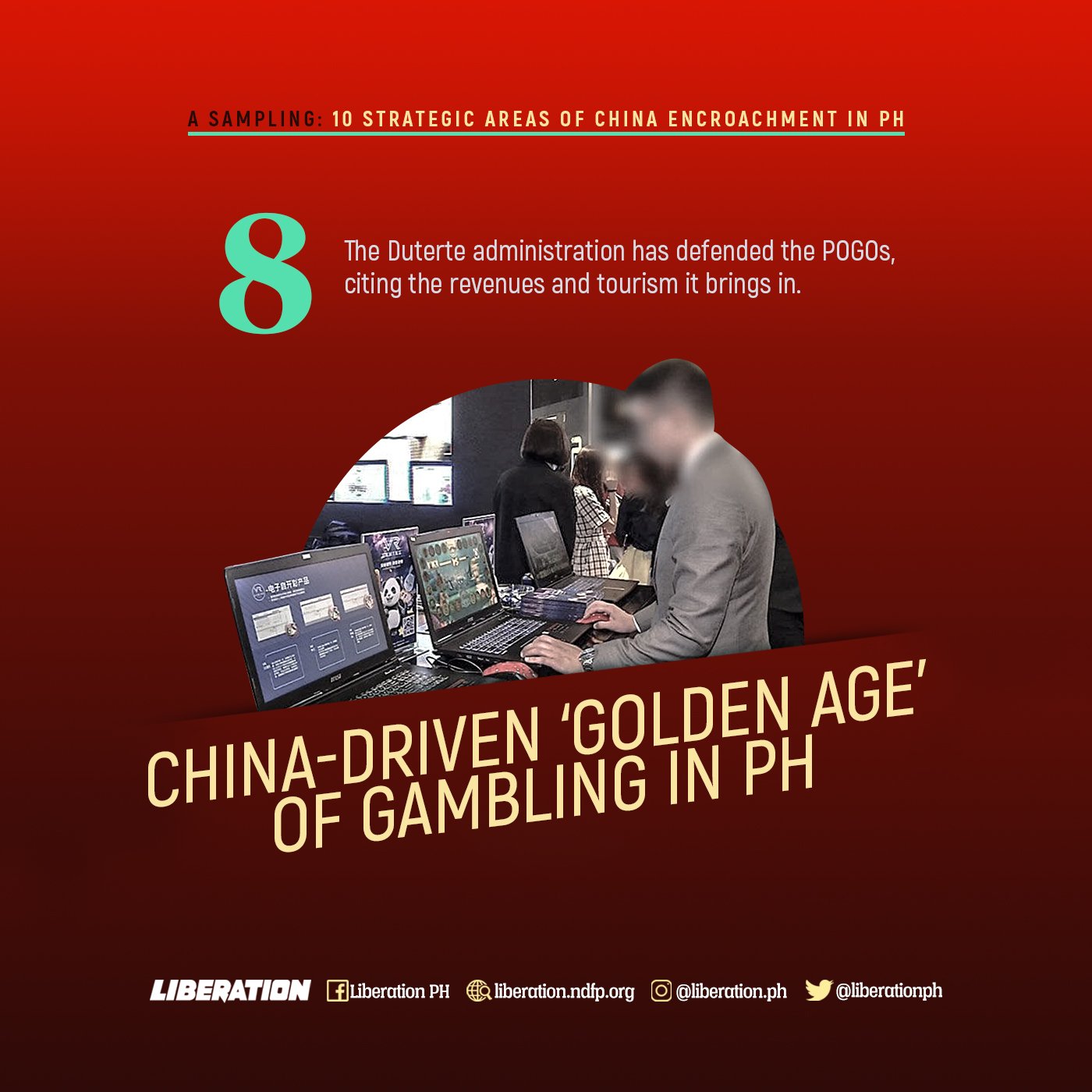
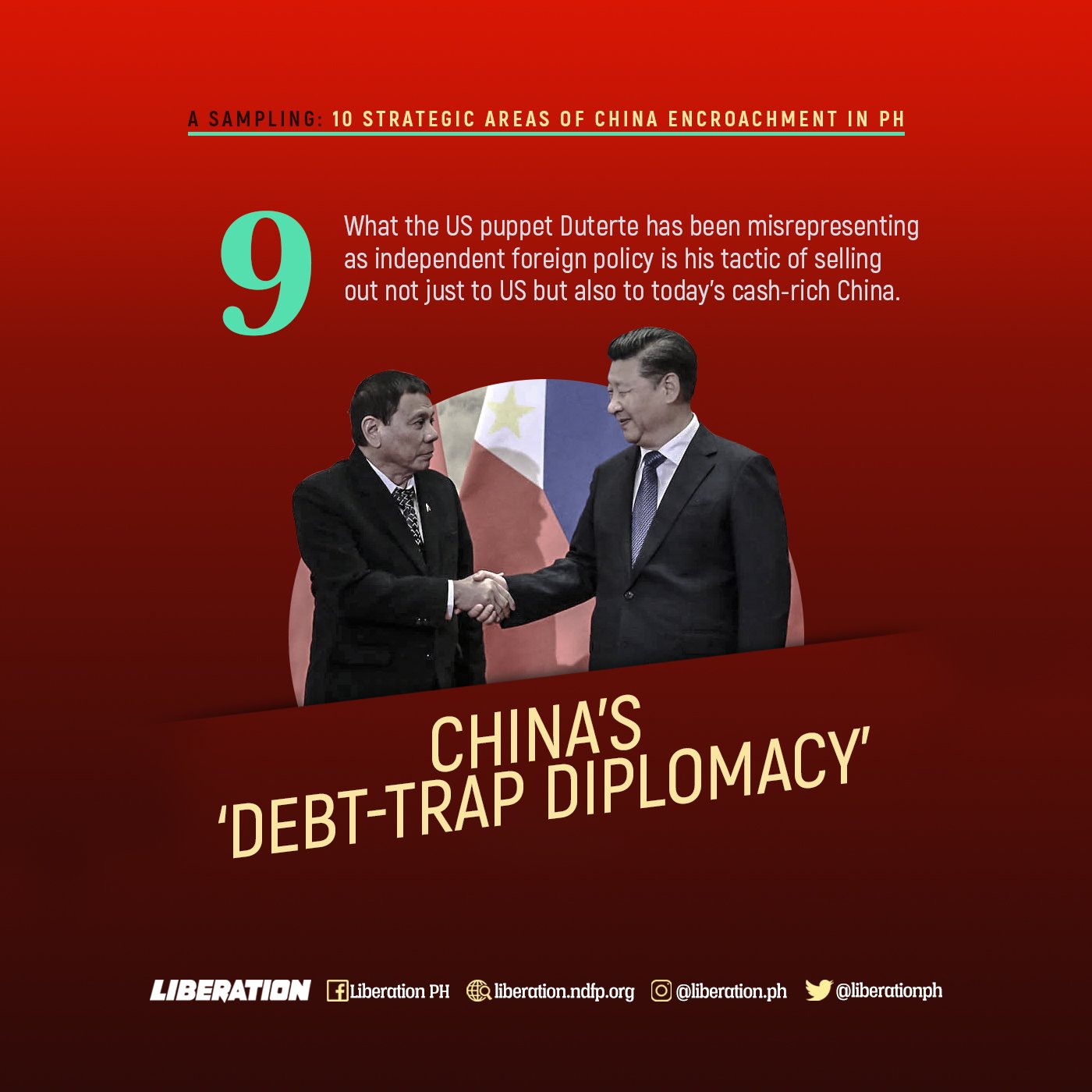
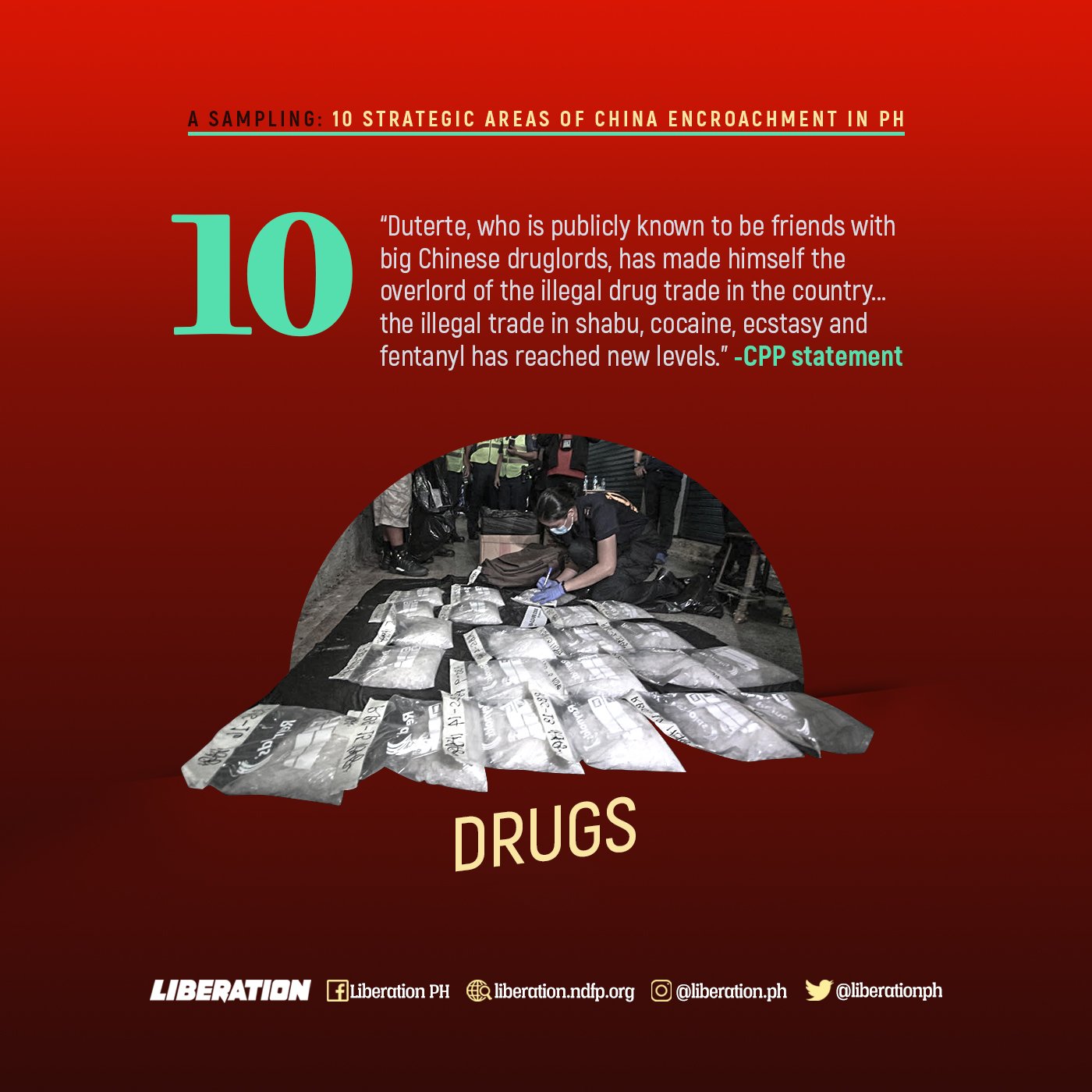
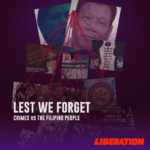

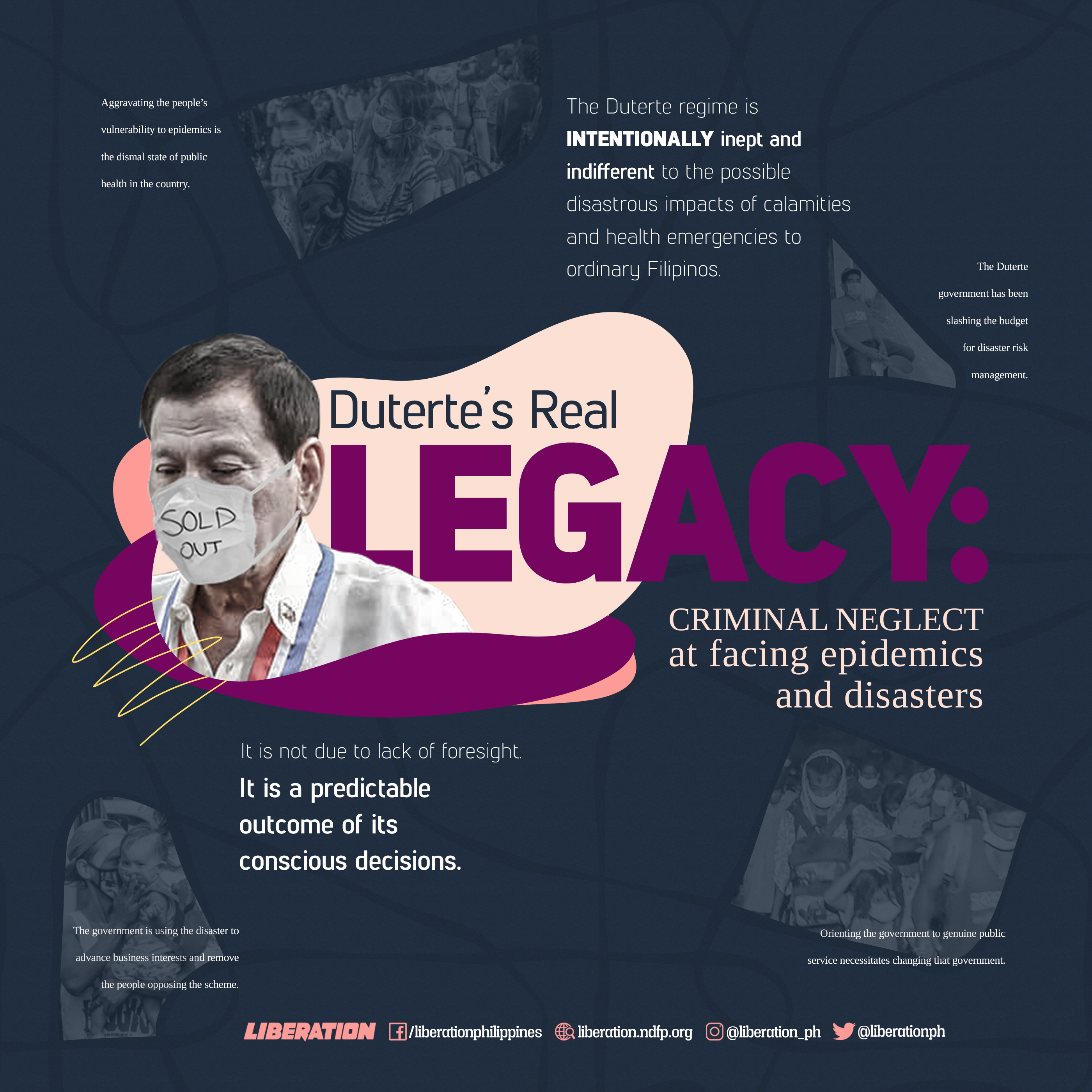
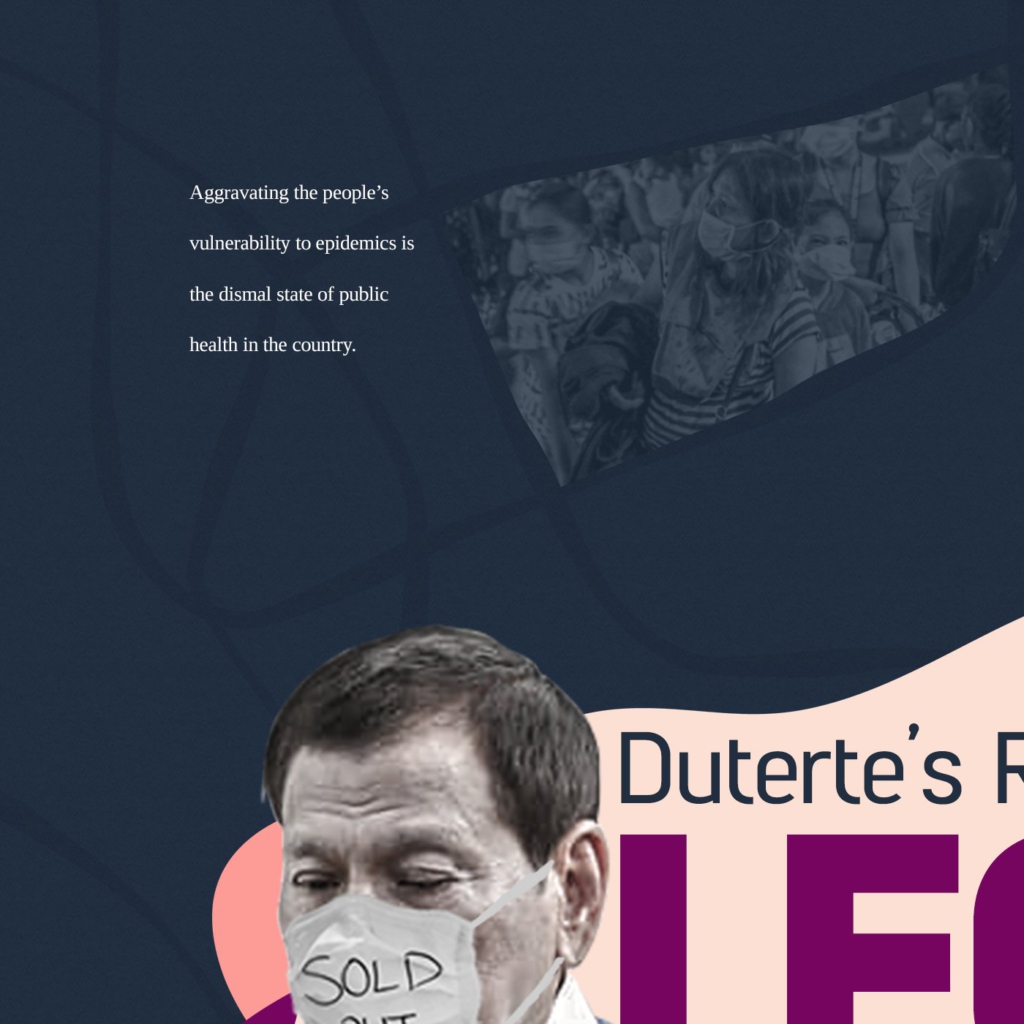 SLASHED BUDGET, WEAK HEALTH CARE SYSTEM FOR THE POOR
SLASHED BUDGET, WEAK HEALTH CARE SYSTEM FOR THE POOR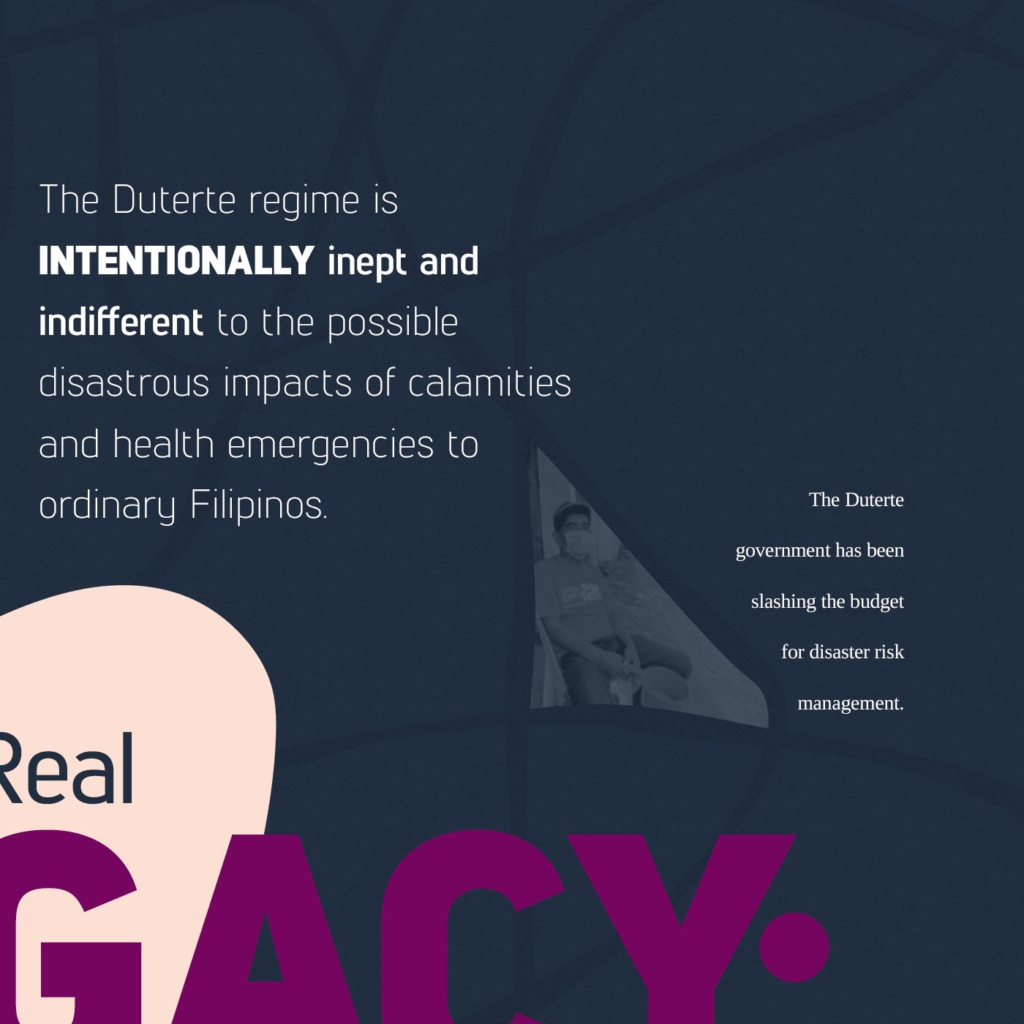 SLASHED BUDGET, ILL-PREPARED FOR DISASTERS
SLASHED BUDGET, ILL-PREPARED FOR DISASTERS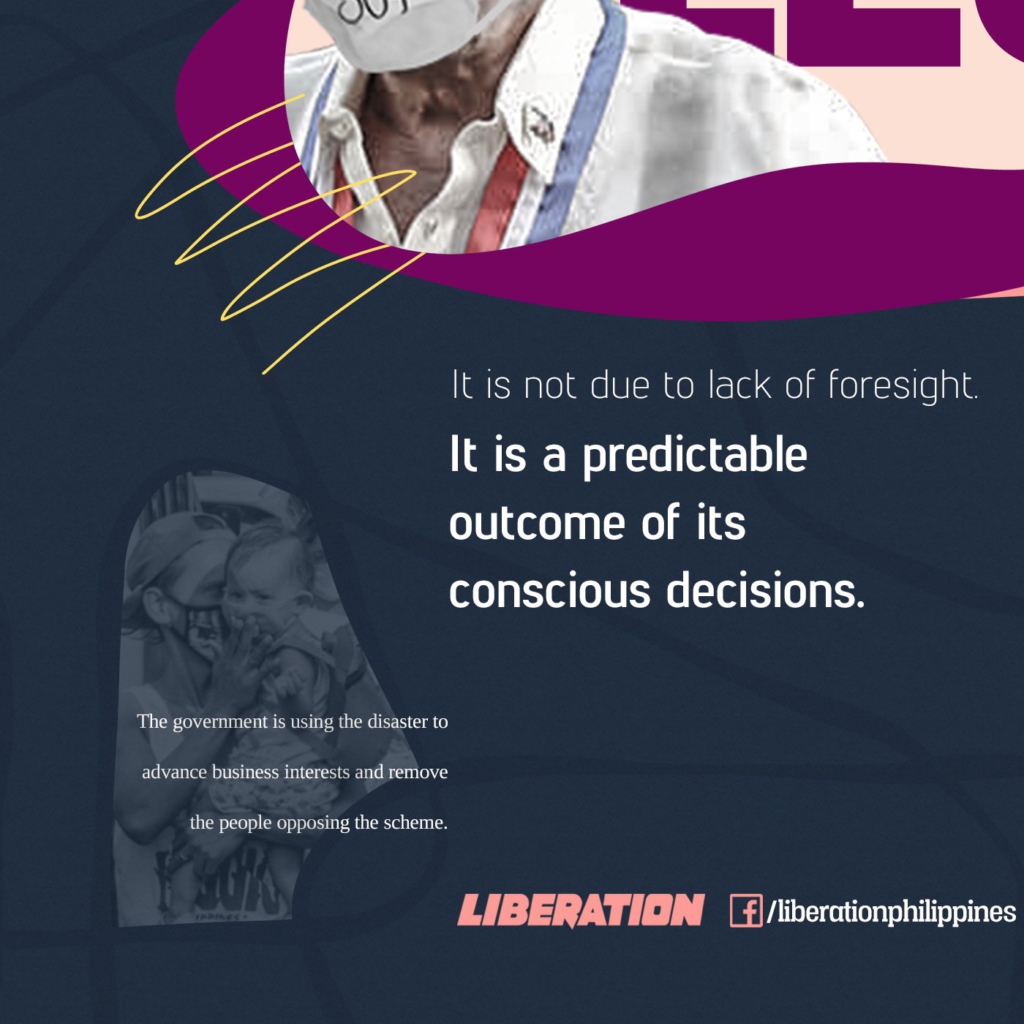 BUT THERE’S MONEY IN DISASTERS
BUT THERE’S MONEY IN DISASTERS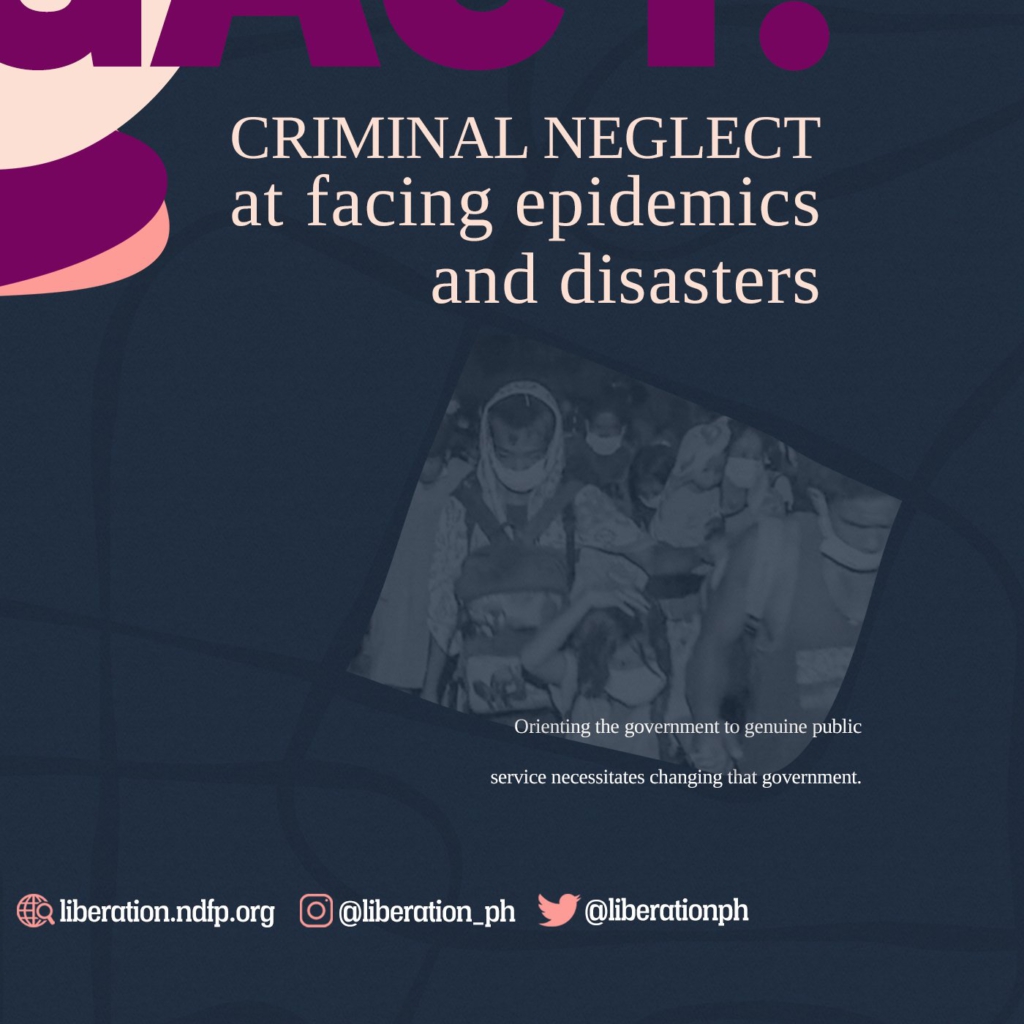 OUSTING DUTERTE A PATRIOTIC DUTY, BUILDING THE PEOPLE’S DEMOCRATIC GOVERNMENT A NECESSITY
OUSTING DUTERTE A PATRIOTIC DUTY, BUILDING THE PEOPLE’S DEMOCRATIC GOVERNMENT A NECESSITY